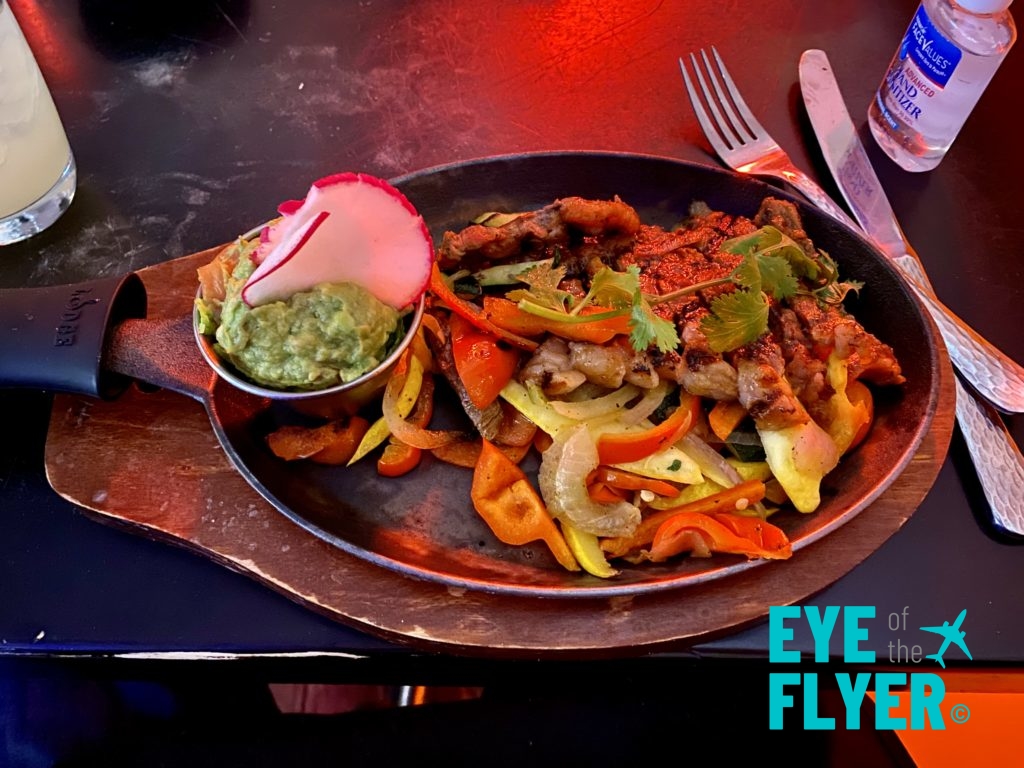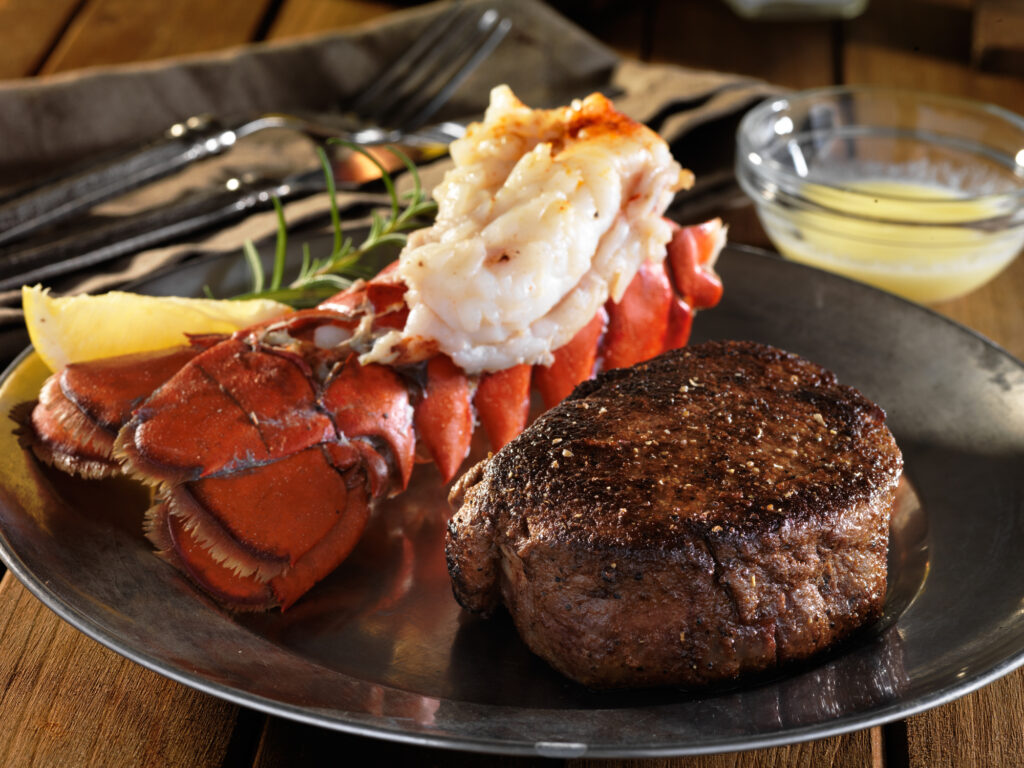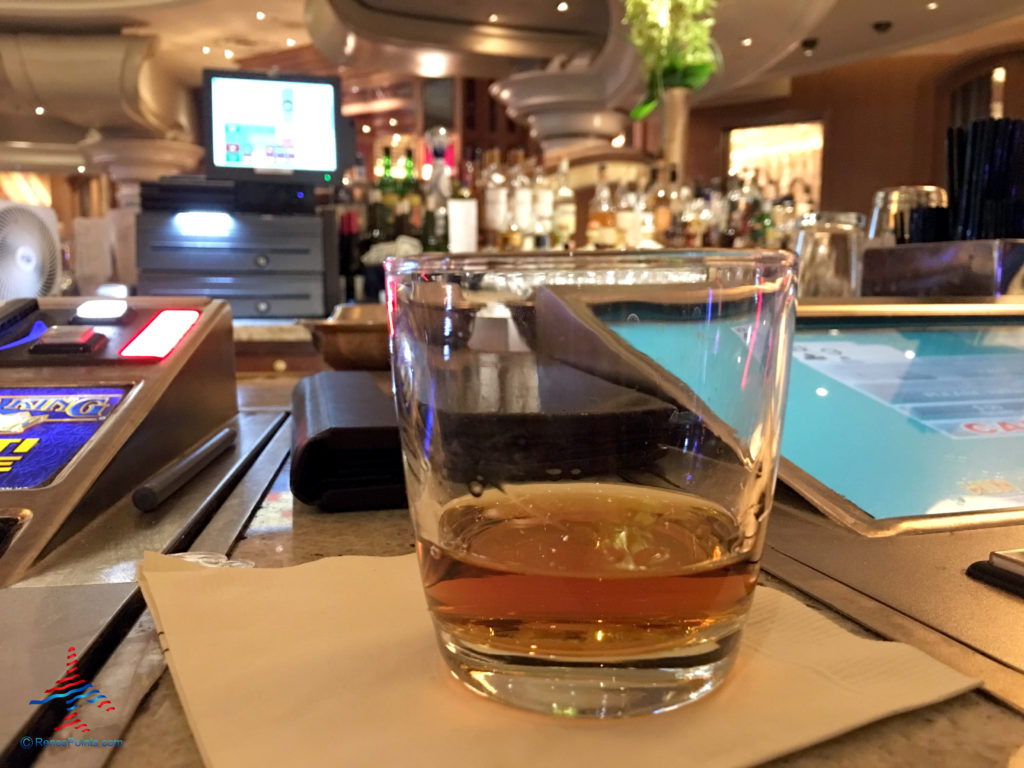Advertiser Disclosure: Eye of the Flyer, a division of Chatterbox Entertainment, Inc., is part of an affiliate sales network and and may earn compensation when a customer clicks on a link, when an application is approved, or when an account is opened. This relationship may impact how and where links appear on this site. This site does not include all financial companies or all available financial offers. Opinions, reviews, analyses & recommendations are the author’s alone, and have not been reviewed, endorsed, or approved by any of these entities. Some links on this page are affiliate or referral links. We may receive a commission or referral bonus for purchases or successful applications made during shopping sessions or signups initiated from clicking those links. The content on this page is accurate as of the posting date; however, some of the offers mentioned may have expired.
I’m fortunate to have a job and clients who still require some business travel.
During one of my past few business trips, I checked into a Westin hotel. That’s where my client’s client made our crew’s housing reservations. I tried handing the front desk rep my Chase Sapphire Reserve®® for incidental expenses. (It earns 3X Chase Ultimate Rewards® points on travel purchases after the card’s annual $300 travel statement credit is exhausted).
She told me I could put the card away. My money was no good there.
“(The Company’s Name) is direct billing all charges,” she said. For those who don’t know: “direct billing” means someone is paying for at least part of the room. In most of my experience, it’s usually the room rate, fees (resort or destination fees, etc.) and related taxes
But it’s a rare treat (at least, for me) that all room charges are direct billed. Food, beverages, parking, spa, gift shop, whatever.
And therein presents an interesting dilemma for some people: the ole “What and How Much Can I Charge to My Room?” situation.
It can be complicated — but doesn’t necessarily need to be. Let’s break it down a little.
Business Travel Expenses
Many companies are different in how they treat travel expenses. (If you’re a business travel rookie or live 300 days on the road each year, I’m very interested to hear your take and advice on this.)
One of my clients simply adds a per diem to my day rate when I travel. This way, they don’t have to approve individual expenses. If I want to be cheap and eat at McDonald’s, I can. If I want to treat myself to sushi or steak (or both!), I can. (This, by the way, is one reason I love having airport lounge access. I rarely pay for meals on days I travel home. I simply pop into a lounge and eat there. It was even better before most lounges cut access to arriving flights.)
But you’re sometimes told to submit all your receipts “and we’ll go from there.” Oy. Maybe you’re given a company card and can charge meals, drinks, etc., to that card. If you’re given such instructions.
Or, there’s the direct billing situation.
Consider this: when (and if) you’re given free rein to charge everything to your room and the entire folio is being taken care of by someone else, the people paying (generally) know how much incidentals cost at that hotel. If burgers are $25, they know it. Glasses of wine you actually want to drink might cost $17. They’re probably aware of that. But they also know how much the high-end items cost. If you spend $1,000 on breakfast and dinner in two days, that might trigger a red flag.
During this particular “direct bill everything” trip, though, something stupefying happened.
“I don’t want to make the company mad and charge too much stuff to their account,” one of my colleagues said.
“So don’t,” I said. “Just be reasonable.”
Then they paid out of pocket for their own very modest meal. And it wasn’t anything extravagant. He bought, like, an appetizer sampler platter and a couple of Old Fashioneds. We’re talking maybe $65-ish. (Keep in mind these are hotel prices in a major city downtown market.)
If this person ordered steak, market-price lobster, and a bottle of 2017 Duckhorn Cab, that’s different. Especially if they did it every night.

But this generous company insisted on paying for (what I perceive as reasonable) charges. Let them. (Then, of course, there are companies who don’t see the difference between Manhattan, New York, and Manhattan, Kansas. Commiserate in the below Comments section.)
Here’s my take: charge and expense items that are reasonable. Meals, coffee, water, snacks — that sort of thing. My blood type is basically Venti Cold Brew (sorry, Live and Let’s Fly). I’ll charge a couple of $6 cold-brewed coffees to the client. Bottled water? Sure thing. A cocktail here and there? If your company or client permits it (or doesn’t explicitly forbid booze), go for it.
They know you’re out of town and need your creature comfort-necessities. Now, when it comes to spa treatments or stuff like that, I can’t say I recommend making a client or employer pay for them — unless you’re specifically told to pamper yourself.
I have no problem charging back something in a menu’s middle price area. But that’s about my ceiling. I’m fine with a burger and fries. Maybe I’ll order a cocktail or two.

Think of yourself as a business owner (if you aren’t already). Then think about how you’d want your employees to behave when you tell them you’ll pay for reasonable expenses. Apply that to your situation. That’ll give you a decent idea of how much to spend on someone else’s tab.
Keep in mind that itemized receipts and folio can quickly become rumor mill fodder. (“Such-and-such ordered how many drinks that night? Did they pick up someone at the bar — again?!”)
Just be smart about what you buy. Don’t take the privilege for granted. After all, you want this company to continue employing you! Or, at least, send you out again on trips.
Final Approach
Traveling for business can truly be a wonderful thing. It might be a great way to see the world (or, at least, the country in which you live!) on someone else’s dime. But how much of that dime can present interesting situations.
What are your experiences and guidance about travel expenses?
Advertiser Disclosure: Eye of the Flyer, a division of Chatterbox Entertainment, Inc., is part of an affiliate sales network and and may earn compensation when a customer clicks on a link, when an application is approved, or when an account is opened. This relationship may impact how and where links appear on this site. This site does not include all financial companies or all available financial offers. Opinions, reviews, analyses & recommendations are the author’s alone, and have not been reviewed, endorsed, or approved by any of these entities. Some links on this page are affiliate or referral links. We may receive a commission or referral bonus for purchases or successful applications made during shopping sessions or signups initiated from clicking those links.













Whenever this happens, I stick to the rule “whatever you’d do at home”. Would I eat the filet at home? Probably. Would I get a massage every evening after work? Probably not.
I live by a similar motto when I’m on the road; spend money like it was yours. I get per diem and I keep my food and lodging reasonable. Even if I was on expenses for food and lodging I’d do the same. With my rental car and airfare, which are expensed, I rent and fly as if it were my money (we also have rules we must follow but only because those items were abused long ago).
But, yeah, some people lose all sense of control and responsibility and act like they get carte blanche when everything is being paid for. And then it ruins it for others.
When I was on company paid travel, I was stuck with a per diem. Anything over that amount I had to pay for. I wasn’t management, though. Who knows what they were allowed to do…?
My company pays our expenses but as you stated we need to be reasonable. I get lounge access so I usually don’t have any meals/drink expense on day of travel. With most hotels I stay at I get free or mostly free breakfast so I only expense the actual cash cost. Dinners one night might be $60 or more and on another night $20-25 as long as the overall is not out of line with the city I’ve never had a problem.
Basically don’t pad your expenses and do what you would do if you were paying the bill yourself.
I once got a free passport because mine expired just before the business trip and the company paid for it. Like the article, it was direct billing and I ate moderately. I did eat at a Japanese restaurant at Detroit Airport during a connection, something that I wouldn’t normally do but it wasn’t really expensive. So the difference between a vacation and the business trip was about $20/day in meals, a $130 or so passport, and the hotel was a bit more luxurious but still almost budget. So maybe they paid for $500 more for a 5 day stay. It all adds up.
There’s no golden rule for every situation; however, the closest as a number of folks have said is “would I buy/eat/drink this with my money.” I’ve gone from employee to business owner at the same company over the past 17 years and my approach has never changed. Mid-tier hotels, mid-tier restaurants, etc. The big exception is when entertaining clients it’s nice to step things up a notch.
I travel weekly for work and expense everything. Some gets billed to clients but most does not. There are a few caveats. I can only book Main Cabin fares (status gets me upgraded most of the time). I have to use either National (never a problem – love Executive or Executive Elite selections – or Avis for vehicle rentals and book no bigger than full sized due to corporate rental agreements (Hertz has become a huge disappointment and credit card benefits keep me at PC anyway). Thankfully, my company does not limit with any hard and fast rules how much I can spend on meals and lodging. However, I do watch how much I spend for lodging. If a mid tier hotel property will meet my needs (think Hilton Garden Inn or Courtyard) then that is where I will stay. After all, at the end of the day, I only need a bed to sleep in and don’t need all the amenities that an upper tier property offers. I will then take what I have saved on lodging and spend it on food and drink. My company only asks that I be reasonable. I love a good bourbon (or 2 or 3 – think Weller Antique neat) with dinner. I also love a good meal so it is not uncommon for my dinner cost to be $100-150 per night. I do try to keep breakfast and lunch between $15-30. There are also plenty of times when I have eaten at the hotel restaurant. While not ideal, at the end of the day it is still food and having a G and T or some Basil Hayden is not going to unduly burden me. With all that said, my company has yet to ever question an expense report I have submitted or tell me that I am spending too much on travel expenses. I am not even required to submit an itemized receipt. They know that I am not going to spend $2500 on a bottle of wine or $300 on a pour of Pappy 25. Sadly, I have sat with a number of people who have to limit their food costs and have to pay separately for any alcohol consumed. Am I blessed with this? Sure. Does my employer know that I am making them money? Absolutely. This is one of the ways that they can show appreciation. Or at least that’s what they tell me.
I used to be a traveling consultant with a range of arrangements from fixed per diem to every expense line item being scrutinized. I always made sure I ate and drank moderately (rarely drank on the client’s dime), booked reasonably priced flights and hotels. Never got into trouble.
I also worked as a COO/CFO for a consulting company and set travel policies. We had to step up scrutiny of expenses after one of our consultants regularly consumed 5-6 drinks on Thursday at the airport (return to home day). We ended up disallowing reimbursements for alcohol unless it was pre-approved.
One interesting incident was when a client held up about $25k in expense reimbursements because the consultant couldn’t explain why their Uber took a route from the airport to the client’s office that was ~10 miles longer than the usual route. We tried to get the client to pay ~ $24,900 and resolve the Uber issue later but they wouldn’t budge for months.
I have to book flights and hotels through our company’s online portal, where all the various policies are automatically applied as filters. So when I fly from Philly to London, the portal only shows hotels that are under the max per-night rate (which changes throughout the year). Flights are a little different, it’ll try to put me on a two-stop itinerary through Dublin and Amsterdam because it costs $150 less than the direct AA flight, so I get the direct flight and my manager gets notified. Technically, our policy says that flights over 7h (PHL to LHR is 7:15) are eligible for business class, but I’ve heard that’s a no-go for anyone so I split the difference and upgrade to premium economy after booking on the portal, then expense the upgrade…or just book directly on the airline and send a screenshot of the portal having just crashed.
Incidentals are basically completely approved. I technically have a $60/day meal allowance but if I’m with a coworker and pay for everything, I file it as “Employee Entertainment” and that’s that. I’ll usually pick up a bunch of granola bars for breakfast, that’s like $15 for the whole week; lunch is usually light; then dinner is always with a client or other folks on the team. I’ll even charge back forgotten toiletries or OTC meds.
Oyster Card, local sim, train tickets, all charged back and cleared automatically.
Only thing I don’t charge back is my own entertainment after working hours. Last time over I went to a play and had a glass of wine at intermission…not gonna expense that.